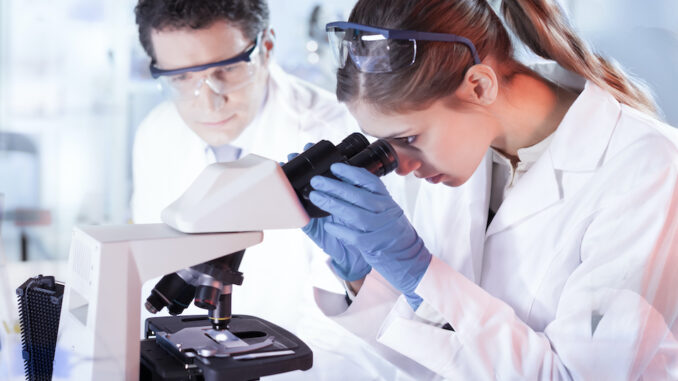
The Microbiome Signature Project arranges a Pitch Day on 27 September in Malmö, Sweden as the final event of the three-year-long project. It is a unique event to showcase startups in Medicon Valley within the human microbiome field. The companies are looking for collaboration and/or investments with regional, national or international partners. For those who are interested in the microbiome field and what is happening in Medicon Valley, this is a prime opportunity to attend the pitches, network with people in the business, meet potential partners and tap into early-stage startups.
The event, which takes place at Malmömässan Exhibition & Congress Centre, is free of charge. The organisers have made sure there is plenty of time for breaks and face-to-face networking opportunities with the startups and people in the audience.
The following companies are pitching their ideas: Uvisa Health, Selcis Biopharma, Gut in Balance, Mello, MycoBiotix, Unseen Bio, Enbiosis, Gedea BioTech and BioGaia Pharma.
Michel de Baar, Executive Director at MSD is one of the five jury members. He explains what he thinks the startup presenter should focus on in the pitch.
“It’s important for everybody, whether you’re talking to a venture capitalist, big pharma or the audience, that you explain the science and the rationale of what you’re doing. Science is what we’re investing in as well as in the team behind it, so make sure to have time to briefly present the team. The more people can explain what they’re trying to do, the better,” he says.
The competitive advantage of the product, what value it brings to people and society, customer validation and business model are crucial things to include in a pitch, but also the story behind it.
“I’m looking for innovation, novelty, science and a good story containing a good plan for how to continue the development. Where did the idea come from? What is the hypothesis? How did people arrive to where they are? How are they going to further exploit it? What strategies do they have to bring innovation to the patients? The pitch contains a lot in a very short time so there are a lot of things I prefer not to hear in a pitch,”
explains de Baar.
So, when you’re telling the audience and the jury about your competitive advantage, it is equally important not to include certain things in a pitch.
“Very often people put too much time and emphasis on explaining the market, but you’re only wasting your valuable time,” explains de Baar. “Venture capitalists and big pharma like us tend to know the market, or will assess them ourselves, and ultimately, good medicine will always find its patient. Just clarify in one slide that you understand the market and enthuse us with your idea and plans.”
The microbiome research field is a relatively young and small niche within life science. However, it’s been growing exponentially, especially during the past three years if we look at how many scientific publications that have been published. The Microbiome Pitch Day could be seen as a temperature gauge on the entire field of the microbiome.
“I’m looking forward to the science and novel ideas, but also diversity,” says de Baar. “Hopefully we get to hear very different types of ideas, which makes it challenging for the jury. I’m looking forward to a fun event, meeting new people and a very stimulating day where I walk away with new ideas and thoughts on how the whole field of microbiome is moving.”
As a jury member and responsible for investments at MSD, Michel de Baar is working where science meets business and strategy, enabling insights from the lab and clinic to the next generation of medicines that can change lives. The challenge is to bridge science and business. When hearing startup companies pitch their ideas, he is always looking for novelty and the science.
“I’m looking for something that is differentiated from what others are doing and what have already been done,” he says. “The startup should have a good plan, good underlying data package, have the right models, and have taken the right controls. I need to understand if there is a viable path forward. Is it possible to scale up, and develop and manufacture the molecules? My partnering or investment decision is linked to all these factors. Also, show that you know about your specific hurdles, and convince the jury that you’re aware of them, and how to solve them,”
de Baar says.
Although you might not know much about the companies pitching at the event, there are many things making it worth the time to attend a pitch day event anyway. You get to hear new ideas, the latest scientific and technological developments and have excellent networking opportunities.
“In a very short time, you get bombarded with new ideas and science, from which you can learn how people are pitching, what works and what doesn’t. You learn about the ecosystem, and what others are doing in the microbiome field. There might be developments you can use in your own programmes or possible collaborations. It’s fun to watch, and there are very good networking possibilities. So, there’s so much making it worthwhile to attend,”
states de Baar.
The Microbiome Signature Project is coming to a close with this pitch day event. During the past three years, the project has highlighted the strengths and depth of the fast-growing microbiome cluster and connected eco-system in Medicon Valley. Hopefully, it will foster even stronger cooperation between the stakeholders established in the area. With continued efforts of Invest in Skåne and Copenhagen Capacity there will be a base for Medicon Valley to be a magnet attracting more microbiome companies, researchers and talent, making Medicon Valley even stronger in the future.


